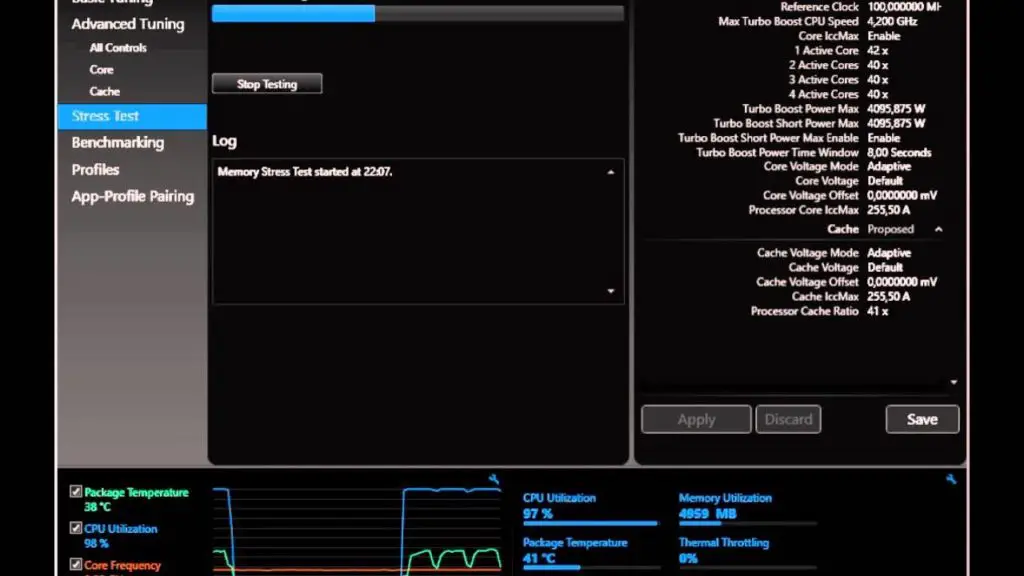

I discovered this was probably because I forgot to reset/disable the core voltage offset in XTU. Throughout the first couple of weeks the system experienced a crash and executed an auto-reboot three times. After enabling and allowing the system to learn the CPU limits, all-cores clock frequency topped at 4.9GHz with core voltage sitting at ~1.35V to 1.38V and average CPU temp plateauing at ~70✬. When winter came around, ambient temp now is ~21✬, I decided to try Asus's AI Overclock. At 100% load, the CPU package temp settled at ~68✬ with core voltage ranging from ~1.28V to ~1.31V. By default, the i7-11700K has a single core Max Turbo Boost of 5.0GHz and an all-core Turbo of 4.6GHz. FYI: The ambient temp averages ~24✬.Īlso during the summer/fall heat, I undervolted my Intel rig's 11700K to keep temps lower.

:) Indeed, I don't normally run the system that way. The CPU does hold ~4.8GHz all cores (for the most part) though. When enabling PBO (auto limits), the under load CPU almost immediately jumps to ~96✬ - obviously, the thermal wall. If the graphics card is also active, that value ramps up another ~10✬. I previously posted a brief AMD PBO test:ĭefault/stock OC/boost: my SFF rig with 5600X cooled by an NH-U9S maxes out in the low to mid 70s C.

Corsair's iCue software as a secondary reference for monitoring sensors. So, I decided to experiment on the "one-click" AI-based masters. However, in the past 10 years auto OC features have emerged. As much of an enthusiast as I am, I have yet to believe manual overclocking is worthwhile.


 0 kommentar(er)
0 kommentar(er)
